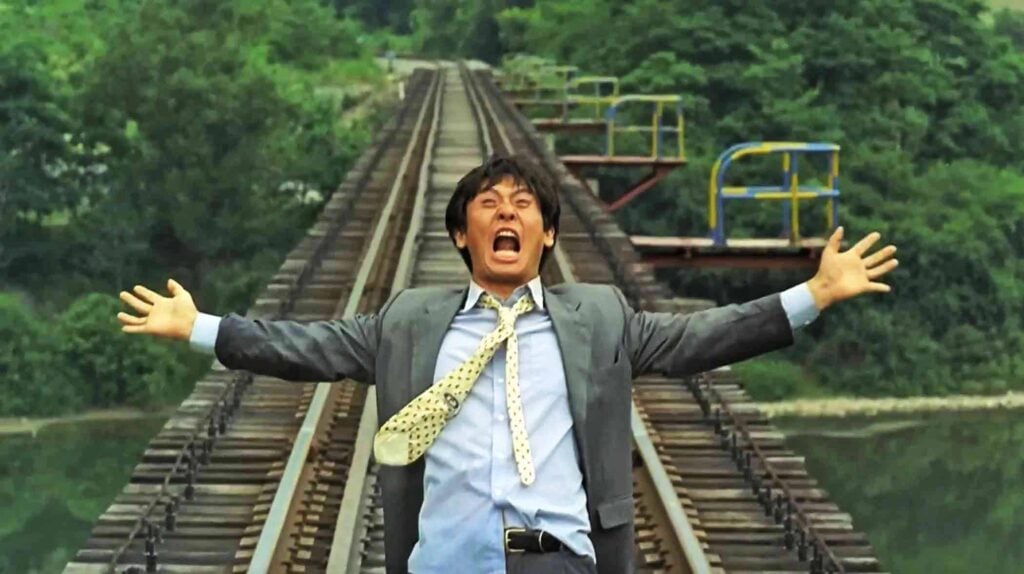By now, the Korean New Wave is almost so grafted onto global mainstream culture, it’s sometimes difficult to remember it as a wave at all. Waves, in any case, age and mutate like we all do, and national zeitgeists are merely, in the end, the aggregate energy of their individual auteurs, who routinely outlive and out-career the hoo-haw of the new-wavey moment. So though today South Korean culture is everywhere, if mostly as a virtuosic variety of audiovisual junk food from Netflix on down, we still have the initial wave’s Fab Four, each now in their third decade of moviemaking. The high-octane genre machines of Bong Joon-ho have gotten the most global love, with the clockwork Grand Guignol launches of Park Chan-wook running a close third. The prolific neo-Rohmerian vexed-relationship dramedy of Hong Sang-soo, on a much more modest and yet much more prolific scale, has carved its own niche in international arthouses and streaming platforms.
The fourth major voice is easily the least congenial, and so the least known: Lee Chang-dong, whose films are prickly dramas of incendiary familial and social cataclysm, emotionally on fire and yet often mysterious and overtly poetic in their narrative fallout. You could say it’s part of Lee’s brand, inflicting ferocious pressure onto both his characters and his audience’s expectations of narrative neatness, seemingly encompassing an exhaustive fourth act where an ordinary film would’ve briskly settled for three, routinely marching past where Western filmmakers would go, into a netherland of psychosocial damage. Lee has directed only six films in 27 year. Starting out as a novelist and poet in the ’80s, he’s as much a writer as a director, his movement’s Cassavetes or Pialat, whipping up ultra-realist emotional cyclones while seething with judgment about contemporary Korean culture — its disaffected youth, its hollow commercialism, its class combat, its disconnection from humanist values. In fact, Lee’s…
Read the full article here







